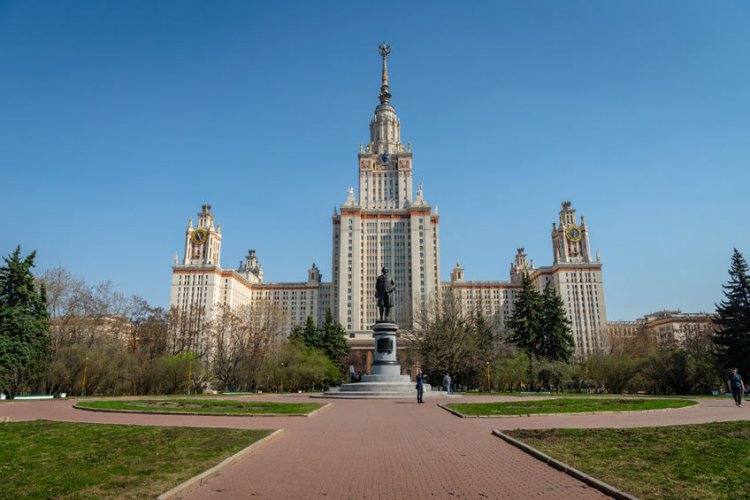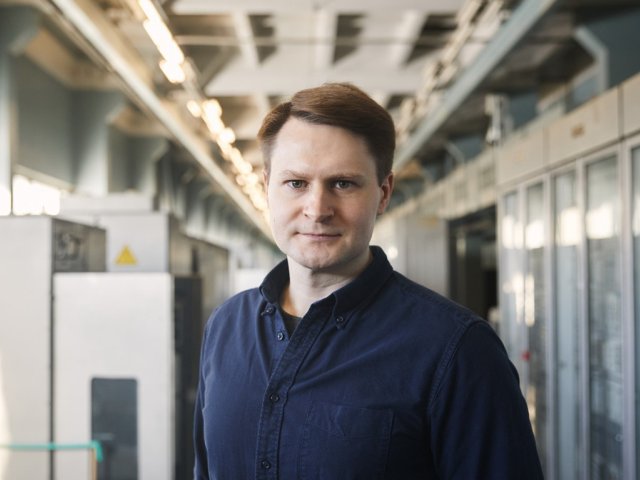13 million tons of plastic go to the world ocean each year, individual ecosystems are turning into deserts at a rate of one and a quarter per year, and southern species of flora and fauna are moving north – a biologist, a geographer, a soil scientist, and a chemist from Moscow State University told what is happening to the ecosystem and what actions should be taken to protect nature.
Last year, Moscow State University opened the interfaculty scientific and educational school titled “Planet Future and Global Environmental Changes” – it united four faculties that are closest to environmental issues: biological, chemical, soil science, and geographical. Environmental issues were discussed by Head of Department of General Ecology and Hydrobiology of the Faculty of Biology of Moscow State University, Member of the Russian Academy of Sciences Yuri Dgebuadze, Dean of the Faculty of Chemistry of Moscow State University, Corresponding Member of the Russian Academy of Sciences Stepan Kalmykov, President of the Faculty of Soil Science of Moscow State University, Corresponding Member of the Russian Academy of Sciences Sergey Shoba, Dean of the Faculty of Geography of Moscow State University, Corresponding Member of the Russian Academy of Sciences Sergey Dobrolyubov, and Acting Dean of the Faculty of Soil Science of Moscow State University, Corresponding Member of the Russian Academy of Sciences Pavel Krasilnikov.
Over the past 50 years, the curves on the graph of natural and anthropogenic factors influencing climate change have sharply diverged – natural variability remains at the past level, while the level of human intervention is increasing. Changes are expressed, for example, in the migration of organisms to new habitats or changing landscapes. Species that move into new territories can become competitors, predators, or pathogens of diseases relative to native species. In particular, on the territory of the Komi Republic, the taiga tick is moving north – changes in the habitat are recorded with an increase in the number of people who go to hospitals with tick bites.
Climate change also affects landscapes, desertification is underway. The ecosystem of the Baikal basin was taken as an example: “The vegetation cover is completely changing. Normal steppe plants are disappearing. Long-term observations were carried out in the Baikal basin: over 27 years, the sand area increased by 38%. The desertification process associated with global warming had a rate of one and a quarter percent a year,” said Academician Yuri Dgebuadze, Head of the Department of Biology at Moscow State University.
Visible changes are also noted in the northern, permafrost territories: in Yakutia, the average annual temperature has risen by two degrees. The soil is changing; along with warming, the waterlogging is increasing, many plants cannot withstand changes and die.
“Ten years ago in the European Union, everything related to climate change was the message of the elites. By the way, the Greens are winning in various European countries, gaining weight and actually dictating policy in certain countries, we see that this is no longer the opinion of the elites, but the opinion of the people,” said Dean of the Faculty of Chemistry of Moscow State University Stepan Kalmykov.
Along with the climate problem, experts raised the issues of pollution. Accidents at oil-producing enterprises affect huge territories, negative exceedances are dozens of times in the soils around chemical enterprises, many closed enterprises remain dangerous to the nature and need to be recultivated, and the weight of the garbage in the world ocean will soon be compared with the total weight of fish: “Now 13 million tons of plastic waste enter the ocean annually. That’s 80 percent of all the garbage in the ocean. By 2025, there will be one kilogram of garbage for every 3 kilograms of fish, and in 2050, the ratio will be one to one. And the problem is that plastic does not undergo biodegradation – it decomposes only under the influence of sunlight into small granules, preserving the polymer structure: particles less than five millimeters. A diaper in the ocean will live for 500 years, a plastic bottle – 450,” said Sergey Dobrolyubov, Dean of the Faculty of Geography of Moscow State University.
Experts have proposed actions that will help rectify the environmental and climatic situation. In particular, there are gaps in legislation: for example, the law says that it is necessary to protect the soil, but there are no separate documents that regulate any particular aspects of its protection.
It is necessary to expand environmental monitoring, develop biodiversity and ecosystem monitoring: forests, swamps, reservoirs. New projects should take into account the conflict of interests and calculate the risks.
The discussion participants emphasized that the issues of nature protection one way or another affect almost all areas of science. “It is important to work out a development model, and this model should not be fragmented, but holistic. This is absolutely impossible without the scientific community: ecology is a science that unites chemists, biologists, physicists, engineers, geologists, and geographers. There are always economic and political issues, issues of international law. I do not know of any other discipline that, on the one hand, would have such a strong influence on all of us, and on the other, would unite so many different specialists,” Stepan Kalmykov noted.
Photo on the homepage: uskarp / ru.123rf.com






















